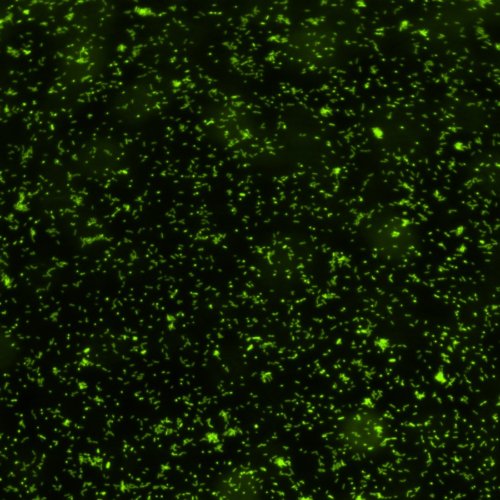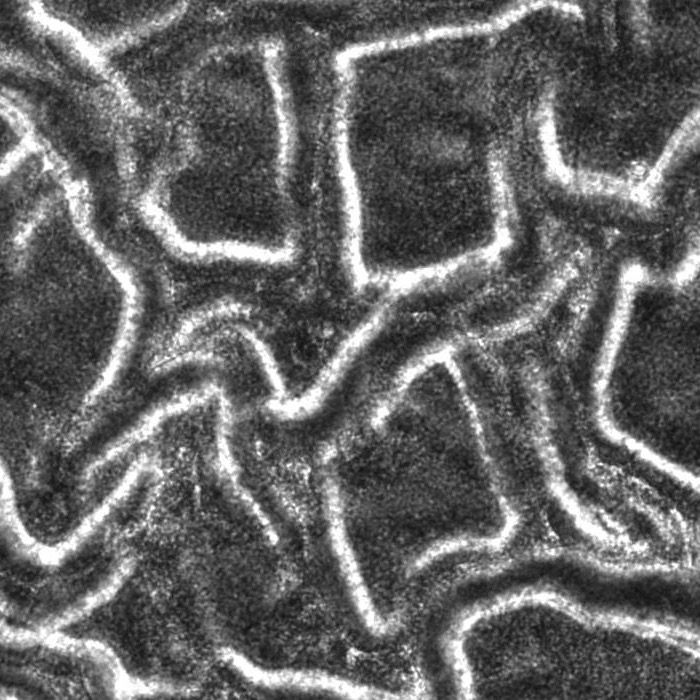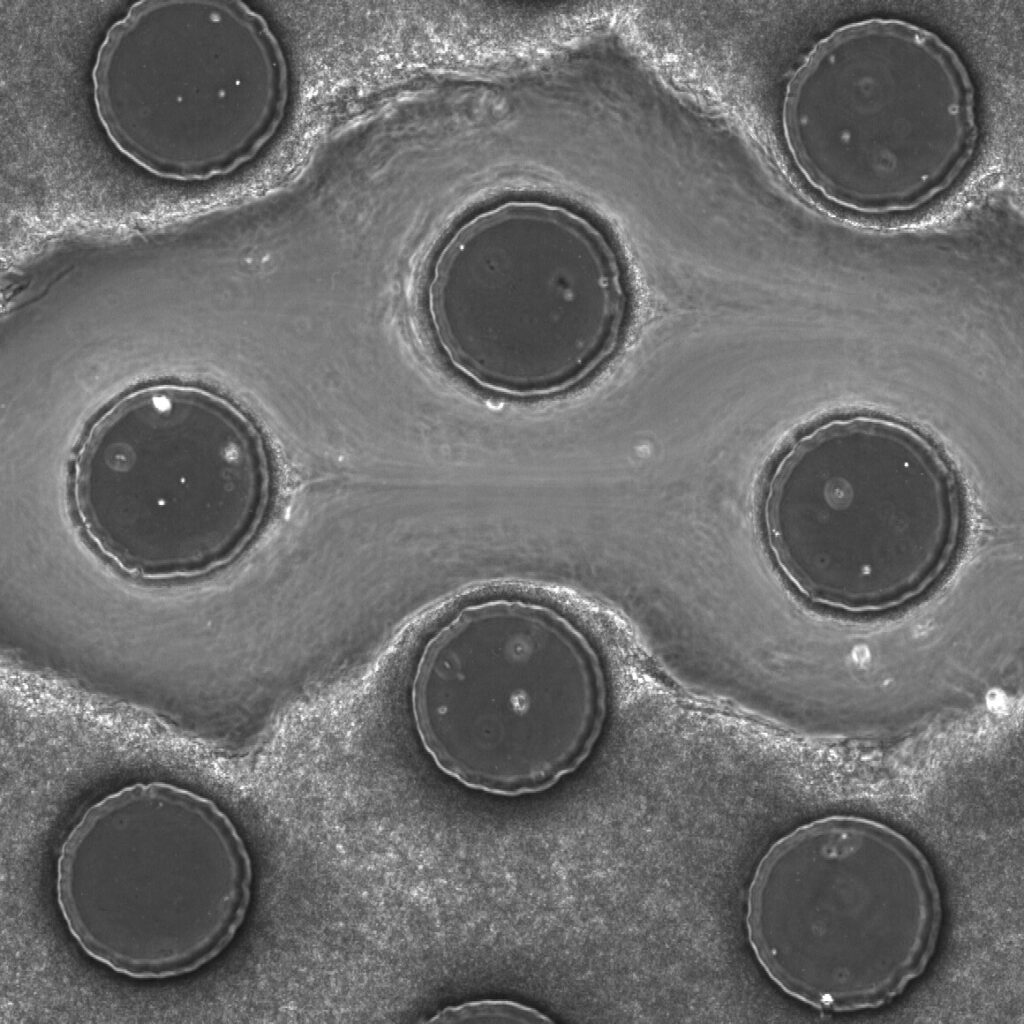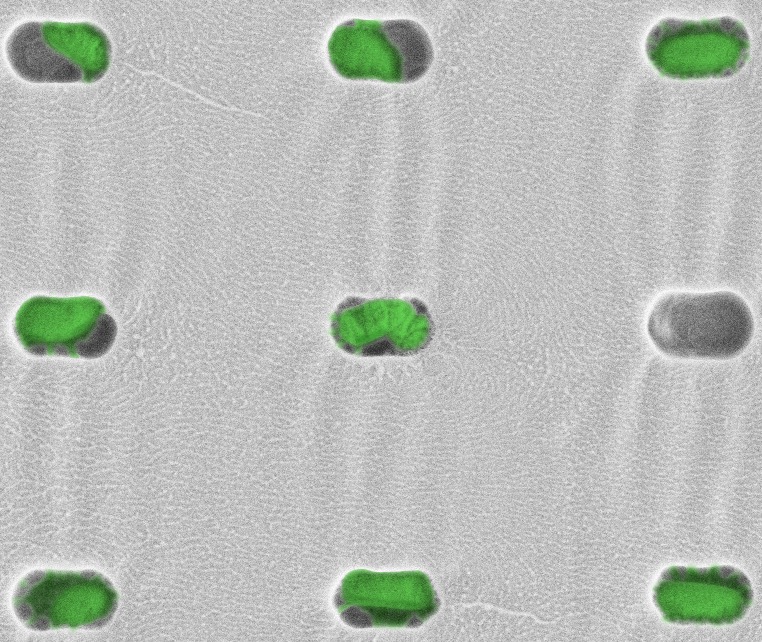Surface colonization and biofilm formation in flow

Biofilms consist of dense communities of bacterial cells embedded in a matrix of extracellular material,which provides protection against mechanical and chemical environmental insults. Many environmental factors can shape the development of biofilms. A nearly ubiquitous factor is ambient fluid flow, along with the shear forces and pressure variations that it generates.We study the role of ambient flow in determining bacterial surface colonization and in shaping the microstructure and mechanical properties of the biofilm.
For more information, please contact Giovanni Savorana (savorana@ifu.baug.ethz.ch)
Structure of channel networks in biofilm

The chemical composition and the microstructure of the biofilm matrix contribute to the viability of the bacterial community. However, little is known about the influence of the environment on the formation of structural heterogeneities like pores, channels or interstitial voids and, in turn,how a certain microstructure benefits the biofilm as a whole.The aim of this project, in collaboration with Prof. Jan Vermant, is to determine the influence of mechanical properties of the biofilm matrix on the formation of a channel-network in biofilms and to relate them with external environmental conditions.
For more information, please contact Steffen Geisel (steffen.geisel@mat.ethz.ch)
Biofilm formation in porous media

Biofilms in porous media can clog pores, redirect flow and thereby can have an influence on local biochemical processes. To obtain a mechanistic understanding on the interplay of hydrodynamics and pore sizes on bioclogging, in collaboration with Dr. Joaquin Jimenez-Martinez, we are studying biofilm formation in microfluidic devices under various saturation conditions.
For more information, please contact Dorothee Kurz (kurz@ifu.baug.ethz.ch )
Single-cell patterning

Controlled and precise patterning of microorganisms into defined spatial arrangements offers unique possibilities for the study of microbial physiology and interactions. Coupling accurate spatial patterning and full control over environmental conditions would provide a powerful and versatile platform for single-cell studies in microbial ecology. To this end, in collaboration with Prof. Lucio Isa, we are developing a microfluidic platform to extend a capillary deposition technique originally designed for colloidal particles, called sCAPA (sequential capillarity-assisted particle assembly), to bacterial systems
For more information, please contact Roberto Pioli (pioli@ifu.baug.ethz.ch )
